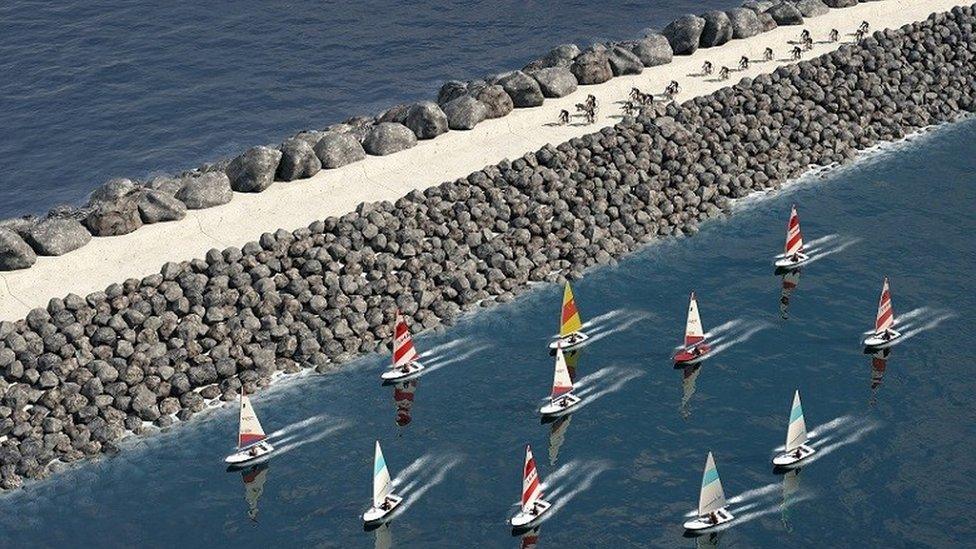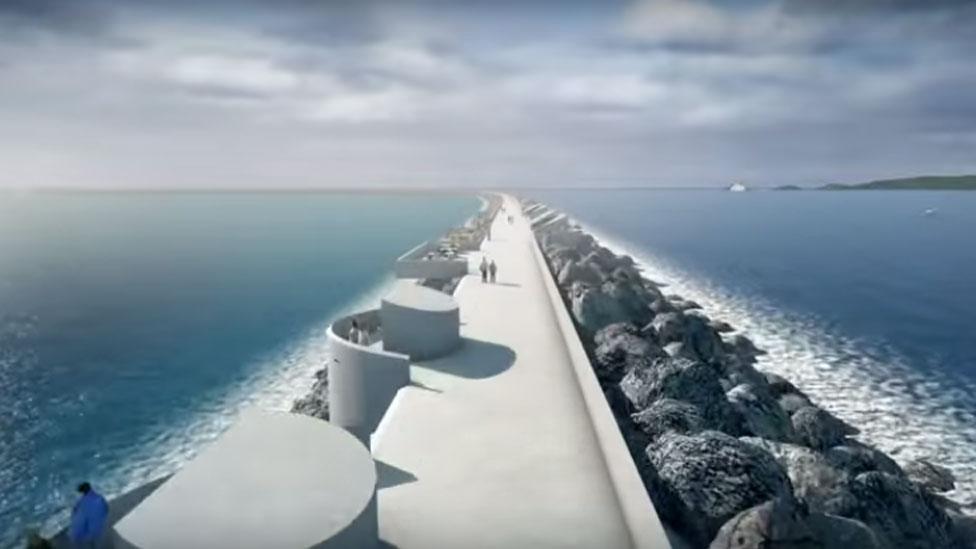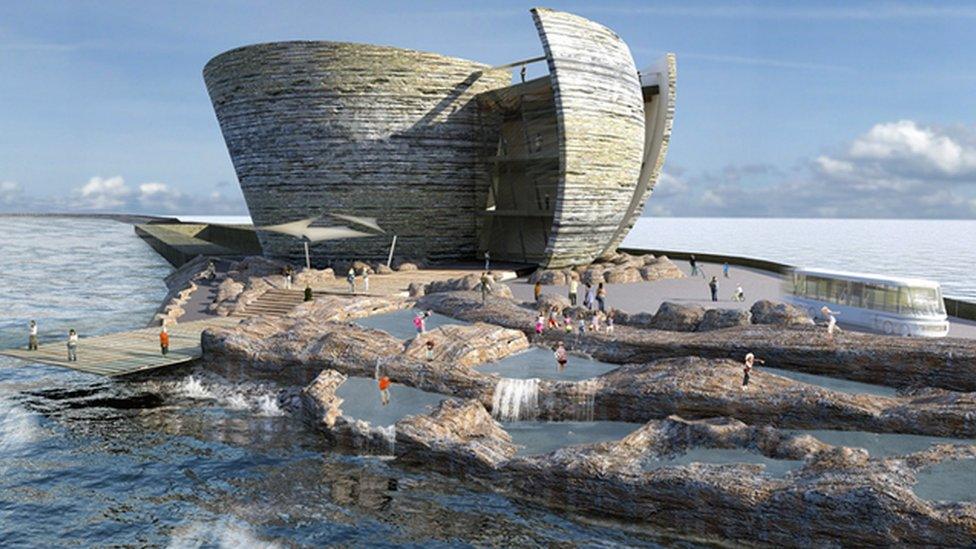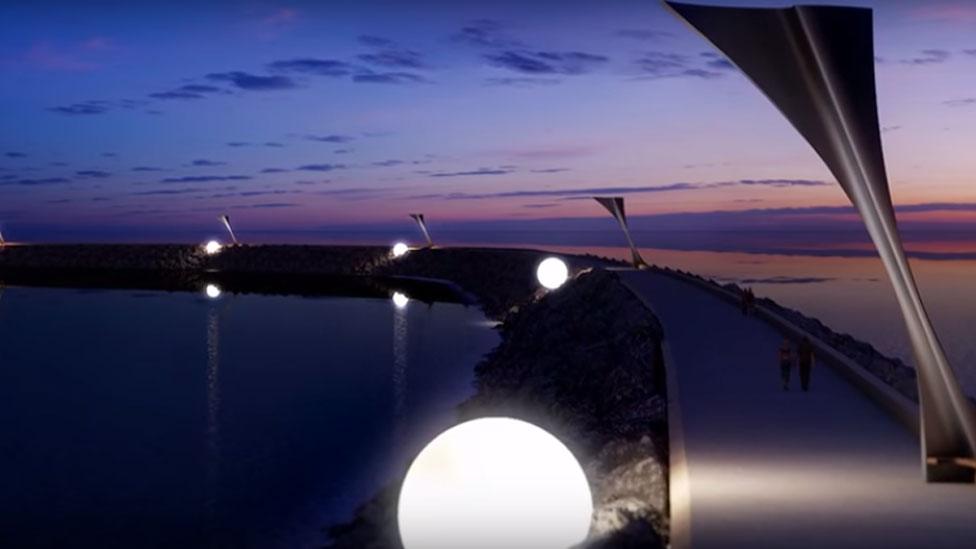Swansea tidal lagoon: Taxpayers loaned companies £2.5m
- Published
Tidal lagoon: 'Welsh Government loans kept firm afloat'
£2.5m of taxpayers' money was loaned to companies behind the snubbed Swansea Bay Tidal Lagoon project.
Now there are questions whether it can be recovered after the UK government rejected the project because it was not "value for money".
First Minister Carwyn Jones said it had not been wasted and government funding was normal to develop new technology.
He said he wanted to prevent the company collapsing as it awaited the UK government's decision.
Charles Hendry, who supported the lagoon in his review, said the UK government could have made its decision 18 months ago.
Three months ago the Welsh government loaned £1.25m to Tidal Lagoon PLC (TL PLC).
That was on top of another £1.25m loan to a separate but linked business, Tidal Lagoon (Swansea Bay) PLC (TLSB PLC), in February 2015.

Supporters still hope the lagoon can be delivered without the UK government
According to the latest available information, David and Heather Stevens, two of the founders of Admiral, are among the investors, holding shares in both TL PLC and TLSB PLC.
Sanjeev Gupta, the executive chairman of Liberty, which tried to buy Tata Steel's UK operations, also invested in TL PLC.
In 2013, people also had the opportunity to make a "high-risk" investment in TLSB PLC to help back the project.
Both companies have been making losses of millions of pounds in the past few years but Geoff Mesher, managing partner at Tempest Forensic Accounting, said that was to be expected given the early stages of development of the lagoon.
It would not be expected to make money until it was operational.
The Welsh government also offered a further £200m to help build the Swansea project, if it went ahead.
A Wales Office spokesman said: "Now that people know the financial cost of the Swansea tidal lagoon, the limited economic opportunities and the risk higher energy costs pose to the steel and manufacturing industries, it is surprising that some people are still championing this specific project."
Dozens of investors, the companies' management, contractors and the Welsh government now hope their tidal power plans can be realised without Westminster's support.


Can the companies backing the lagoon carry on?
BBC Wales understands the intellectual property (IP) involved in the development of the lagoons - effectively the blueprint for future projects - belongs to TL PLC.
In exchange for the £1.25m loaned to TL PLC earlier this year, the Welsh government took a charge on the company, which effectively acts like a mortgage over its assets.
But a forensic accountant told BBC Wales "looking at the level of debt the [companies have]... there's a risk the money will be lost".
Mr Mesher said the value of the IP would be crucial in whether any money can be recovered - can TL PLC develop a project elsewhere using the same technology?
If the UK government's decision not to agree a strike price is based on concern over that technology then it may be worth little.
Although TLSB PLC and TL PLC are separate companies, Mark Shorrock is the chief executive and a shareholder in both.
TLSB has debts of about £17m, but it has been keeping on top of these liabilities using further loans from investment funds and the Welsh government.
TL PLC also made loans to TLSB PLC.
Mr Mesher said: "They're getting funding from some government income, they're getting funding through loan notes and loans, so at the moment they're able to [pay their debts].
"But I noticed some contractors are doing work on a contingent basis [meaning they would get paid if the project went ahead]."
For now at least there are no concrete proposals for making the Swansea project happen.
- Published10 January 2018

- Published25 June 2018

- Published26 June 2018
